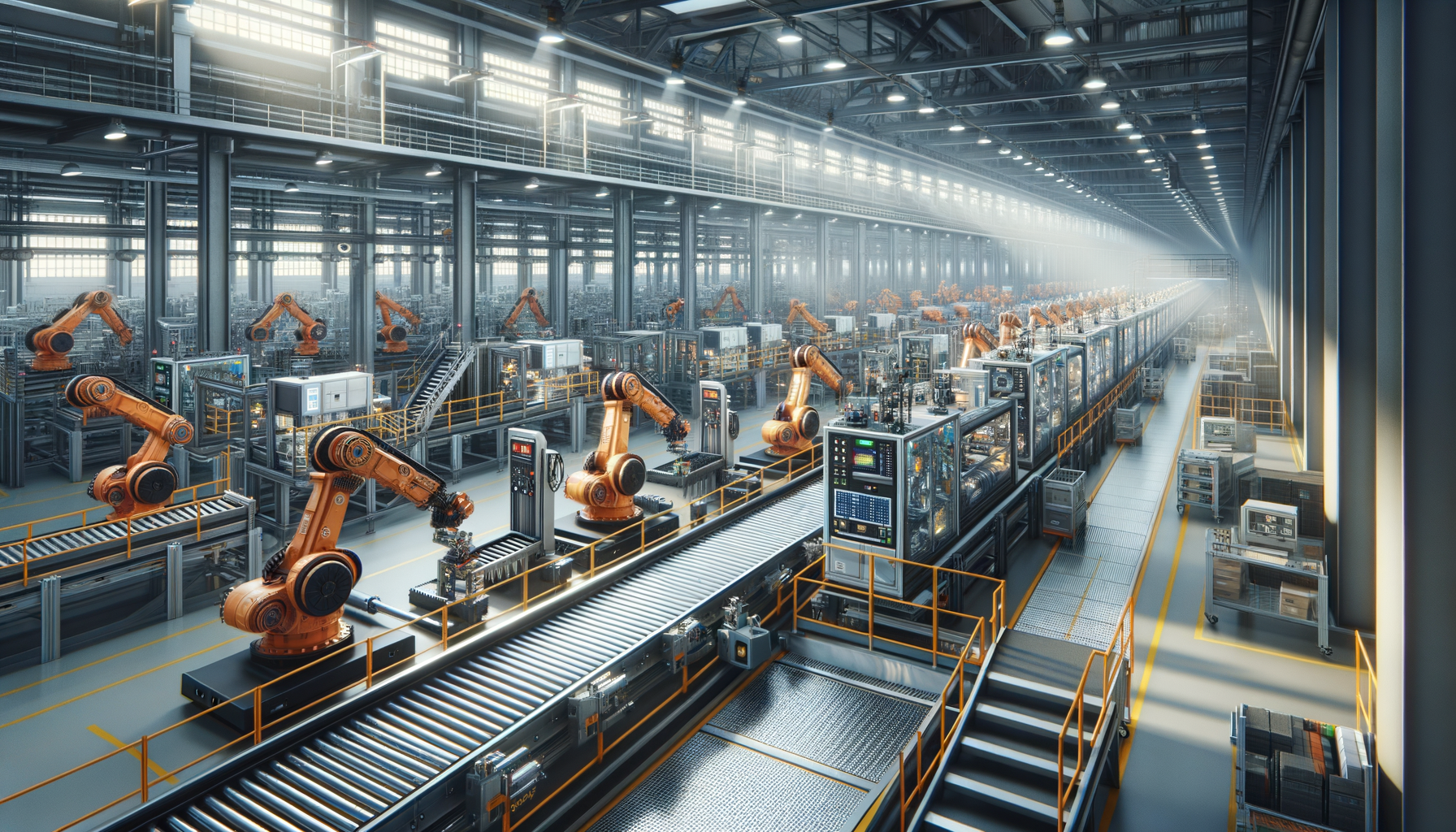The Role of Industrial Machines in Modern Manufacturing
Industrial machines are integral to the manufacturing sector, serving as the backbone that supports a wide array of industries. These machines are designed to enhance efficiency, increase productivity, and ensure precision in production processes. From automotive to aerospace, industrial machines are pivotal in transforming raw materials into finished goods. They not only expedite production but also reduce human error, ensuring quality and consistency.
One of the most significant advantages of industrial machines is their ability to perform complex tasks with high precision. For instance, CNC machines, which are computer-controlled, can produce intricate parts with minimal human intervention. This precision is crucial in industries where even the slightest deviation can lead to significant issues, such as in the production of medical devices or aerospace components.
Moreover, industrial machines are essential for scaling production. As consumer demand increases, the ability to produce large quantities of goods quickly becomes critical. Machines such as assembly line robots and automated packaging systems enable manufacturers to meet these demands efficiently. By automating repetitive tasks, these machines allow human workers to focus on more strategic and creative aspects of production.
Types of Industrial Machines and Their Applications
The world of industrial machines is vast, with various types designed for specific applications. Some of the most common types include:
- CNC Machines: Used for cutting, milling, and shaping materials with precision.
- Injection Molding Machines: Essential for producing plastic parts and components.
- 3D Printers: Utilized for rapid prototyping and small-scale production.
- Robots: Employed in assembly lines for tasks such as welding, painting, and packaging.
- Industrial Grills: Used in food processing industries for cooking large quantities efficiently.
Each type of machine serves a unique purpose and is tailored to meet the specific needs of different industries. For example, CNC machines are widely used in metalworking and woodworking industries due to their ability to produce complex shapes and designs. On the other hand, injection molding machines are crucial in the plastics industry, where they are used to create everything from bottle caps to automotive parts.
The versatility of industrial machines allows them to be adapted for various tasks, making them indispensable in modern manufacturing. As technology advances, these machines continue to evolve, offering even greater capabilities and efficiencies.
Technological Advancements in Industrial Machinery
The landscape of industrial machinery is continually evolving, driven by technological advancements that enhance their capabilities and efficiency. One of the most significant developments in recent years is the integration of the Internet of Things (IoT) in industrial machines. IoT enables machines to communicate with each other and with human operators, providing real-time data on performance and maintenance needs.
This connectivity allows for predictive maintenance, which can significantly reduce downtime and increase the lifespan of machines. By analyzing data collected from sensors, manufacturers can predict when a machine is likely to fail and perform maintenance before it becomes a critical issue.
Another technological advancement is the use of artificial intelligence (AI) and machine learning in industrial machines. AI can optimize production processes by analyzing data and making real-time adjustments to improve efficiency and quality. For example, AI can be used in quality control processes to detect defects in products with greater accuracy than human inspectors.
Furthermore, advancements in materials science have led to the development of more durable and efficient machines. Lightweight yet strong materials, such as carbon fiber and advanced composites, are being used to build machines that consume less energy and are more environmentally friendly.
The Economic Impact of Industrial Machines
Industrial machines have a profound impact on the economy, influencing everything from employment to international trade. By increasing production efficiency, these machines enable manufacturers to produce goods at a lower cost, which can lead to lower prices for consumers and increased competitiveness in global markets.
The use of industrial machines also affects employment in the manufacturing sector. While automation can lead to the displacement of some jobs, it also creates new opportunities in areas such as machine maintenance, programming, and operation. As machines take over repetitive tasks, human workers can focus on more complex and value-added activities, leading to a shift in the skill set required in the industry.
Moreover, industrial machines contribute to economic growth by enabling the production of a wide range of goods, from consumer electronics to automobiles. This diversity in production supports a robust supply chain and stimulates related industries, such as logistics and retail.
- Increased production efficiency
- Lower production costs
- Creation of new job opportunities
- Enhanced competitiveness in global markets
Future Trends in Industrial Machinery
As we look to the future, several trends are likely to shape the development of industrial machinery. One of the most significant is the move towards greater automation and the use of robotics. As technology advances, robots are becoming more capable and affordable, making them accessible to a wider range of industries.
Another trend is the increasing focus on sustainability. Manufacturers are seeking ways to reduce their environmental impact, and industrial machines are evolving to meet these demands. Energy-efficient machines, those that use renewable energy sources, and machines designed with recyclability in mind are becoming more prevalent.
The rise of smart factories, where machines are interconnected and can operate autonomously, is another trend to watch. These factories leverage technologies such as IoT, AI, and machine learning to optimize production processes and reduce waste.
Finally, the continued development of additive manufacturing, or 3D printing, is set to revolutionize the production of complex parts and components. This technology offers the potential for on-demand manufacturing, reducing the need for large inventories and enabling more customized production.




Leave a Reply